What is a Smartphone?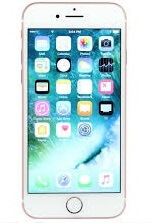
A smartphone is a mobile phone that created the greatest tech revolution since the Internet and allows you to make a call, send text messages, and much more. It comes with highly advanced features and is capable of playing audio, videos, displaying pictures, surfing the Internet, and sending e-mail. Although as compared to desktop, smartphones do not include big screen sizes, they can do everything like a computer. They include a touch screen to allow users to interact with them and can run on any of these mobile operating systems like Windows Mobile, iOS, Android, Symbian, and BlackBerry OS. It allows you to run different-different kinds of applications, such as business-use programs, games, and personal use applications. One of the most popular smartphones available today is Apple iPhone, as shown in the picture. Although initially only business users commonly used smartphones, they are also widely used by consumers in modern times. As compared to earlier devices, modern smartphones are cheaper and smaller due to the advancement of technology. There is a wider range of smartphones available that allows users to choose a device accordingly. Additionally, compared with a regular cell phone, a smartphone contains more RAM, powerful CPU, high storage space, larger screen, and greater connectivity options. Also, a USB connection is included in most smartphones that enable the users to transfer data with their computer as well as update their smartphone software. Smartphones consume low power and come with high processing speeds. Furthermore, as smartphones have many features; also, they are manufactured with innovative sensors like accelerometers or gyroscopes. Gyroscopes are responsible for games to support motion-based navigation, while accelerometers allow screens to display in portrait and landscape mode. In the earliest time, resistive touchscreen displays were used in smartphones that needed the use of the stylus in singular form or (a slender pointing object known as styli) to operate the device. However, capacitive displays began to come with most of the later models like most Android phones and iPhones, which offer multi-touch finger gestures features. Features of smartphonesThe connection of a smartphone to an app store is one of the important elements of it. An app store is a portal that allows users to download software applications; they can also search applications on the app store portal according to their requirements to run on their smartphone. A lot of Mobile applications are provided by an app store like for social media, word processing, productivity, gaming, organization, etc. There are various features of smartphones; some important features are given below: Internet connectivity: A smartphone allows you to surf the internet, which is the most significant feature of a smartphone. Almost all kinds of information are available on the Internet that can be accessed on the smartphone with the help of a network connection. Also, you can use all functionalities related to the Internet on your smartphone. Crystal-clear display: As communication is the most commonly used of the smartphone, but they are also much popular about enjoying media. They have a crystal-clear display that enables you to play games, view pictures, watch movies, and more. Also, they have a touch screen display that allows users to interact with them by using their fingers or stylus. Digital camera: A smartphone comes with a great camera that allows you to capture photos, video, and some surprising other things, like visual search. All smartphones have different types of cameras with different megapixels. The quality of the picture is completely dependent on the megapixels; if your smartphone camera has high megapixels, the picture quality will be good accordingly. And, if it has low megapixels, the picture quality will also be below. Infrared remote control: Smartphones allow you to control your TV like a remote. It would be more beneficial to control your TV with a smartphone that led to reducing the need for a remote. You can control your TV as well as operate your phone and do not need to search for the remote. However, all smartphones have no this feature; some modern contain this feature that allows you to control multiple devices, such as AC, Dish TV, and more. Fingerprint sensor: Smartphones also offer a feature of fingerprint sensor that does save you time to open the lock of your smartphone. But as compared to traditional lock screen passcodes, it is not more secure. Some key points of features of smartphones are as follows:
Types of SmartphonesSmartphones help us to stay connected with relatives, friends, or others; therefore, they have become an important part of daily life. Around 90 percent of American adults have owned a cellphone; it has been studding by the Pew Research Internet Project in 2014. The Windows phones, iPhone, Amazon's Fire Phone, and Android are the most popular types of smartphones. iPhone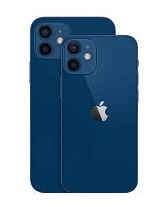
One of the most popular types of smartphone is Apple's iPhone, which is the best-sold smartphone in the world. It is manufactured by Apple company and runs Apple's iOS with features like FaceTime, Safari, and Siri, a personal digital assistant. With the help of Siri, you can play music or video by speaking a song title into the phone. Also, it can remind you of appointments. You can go on Apple's App Store to search for free and paid applications as well as install them. Although there are various different models of iPhones, the iPhone 12 (5.4" or 6.1" Super Retina XDR display) and iPhones 12 Pro (6.1" or 6.7" Super Retina XDR display) are the latest iPhones on the market. The price of iPhones may be high if you choose to buy without a plan. Android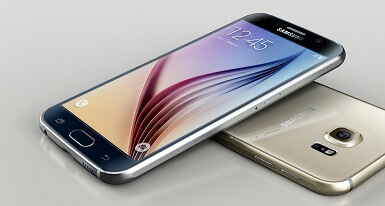
There are many types of smartphones available on the market that have Android OS (Operating System). An Android OS support Google product like Google search, Google Drive, and Gmail. Android phones work best with having a Gmail account; however, they can be used without having it. There are multiple popular phone brands available on the market that use Android include Samsung, HTC, Nexus, and more. They have Google Play Store, which is a place where you can download free applications, movies, TV shows, etc. When you purchase a new Android phone, it comes with preloaded apps like most smartphones. Also, Android phones are from Verizon Wireless, Cellular, AT&T, T-Mobile, Sprint, and Virgin Mobile. Windows Phone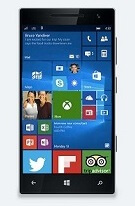
Another type of smartphone is Windows phones; they include Xbox, OneDrive (for Microsoft Word, Outlook), and Bing in terms of the operating system. For PCs, it uses the main feature of Windows 8, Live Tiles, which helps to keep updating you with TV shows, news, or others. Like the iPhone, a feature personal assistant Cortana is included in the Windows phone that can remind you about your birthday, help you avoid heavy traffic, and more. You can essentially power up your phone from Window's Phone App Store. Amazon's Fire Phone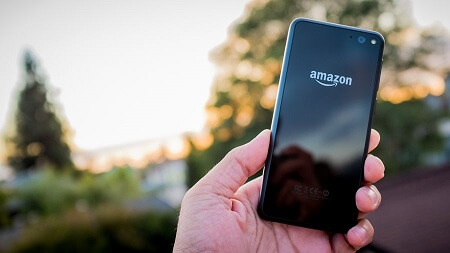
The Fire Phones are also a type of smartphone, which has many features of note. Fire technology is more useful in terms of identifying QR codes, bar codes, songs, and TV shows. Another feature is Amazon Prime, which offers features streaming, including video chat support, allows free shipping on Amazon orders, and more. It comes by default with the Amazon Music, Amazon Instant, Kindle app, Silk browser, etc. You can access Amazon's online store to purchase movies, more apps, TV shows, or other features. The regular price of a fire phone is $450. Disadvantages of SmartphoneAlthough there are many benefits of a smartphone, it also has some disadvantages; some are as follows: CostlyAlthough there are various smartphones available at different prices, high-end phones with great specs and features can be expensive. Also, some applications cannot be fully used as they need to be purchased to fully access them and other functionalities offered by the app. Additionally, you need to maintain the Internet plan if you want to connect your phone to the Internet. DistractionDespite productivity, smartphones are one of the most distracting in modern times. You can get disturbance while you are working an important work as applications notify you when there are updates, messages, latest offerings, and more. Smartphones can affect your productivity if you use mobile phones while walking, studying, talking to others, working, eating, and also in driving. AddictionUsing a smartphone very frequently can because one to become addicted to the phone, which is one of the most dangerous effects when you wake up in the morning and use your smartphone first daily as compared to doing anything else. Thus, you may lead to a serious phone addiction, which is called "nomophobia." A person who is addicted to using a phone, he/she cannot stop himself without using mobile phones. The addiction to using mobile phones causes rises in dangerous health diseases, including anger, tension, irritable and depression. Wastage of TimeAlthough mobile phones offer people many benefits, they are also the biggest things in terms of wasting time. Teenagers and students are mostly affected by smartphones as they mainly use mobile phones for playing video games, listening to songs, and other kinds of entertainment rather than using them for educational purposes. Thus, they waste their precious time on the phone. Uncensored ContentAlthough the Internet offers people many benefits, access to the internet and information easily is also a disadvantage. Because intentionally or not, children or even people can see pornographic content, violence, or other uncensored content. If you have children, you must limit their use of smartphones. Privacy ThreatsWith smartphones, there are security risks and threats everywhere, even if they are made private. There are different types of viruses available, as well as hackers too. Hackers are those who try to gain your personal information illegally, and viruses are virtual and potent that are made to destroy your data available on your smartphone. When you access and surf the Internet, smartphones are vulnerable to these threats. Therefore, make sure you are opening a secure link. Health IssuesOne of the dangerous disadvantages of the smartphone is that they have a negative impact on your health and cause a lot of health problems as they produce HEV light. For example, if you use your phone very frequently, especially at night, it can be caused to your eye's swelling problems or another eye's issues. With the much use of mobile phones, most of the people got the eyesight's problems. Also, the radiofrequency energy that is ejected by the smartphone can be absorbed by the tissues in the body. There can also be health issues if you sleep late at night. There are many people who use a smartphone at night and do not sleep as required, which is also one of the common bad effects of using smartphones. History of Smartphone1994 - The First Smartphone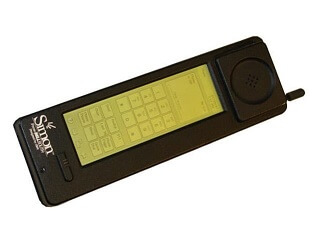
IBM's Simon was the first smartphone, introduced in 1992 and available for purchase in 1994. IBM was the one who came up with the idea. It was shown at the COMDEX computer trade event as a concept device rather than a consumer gadget. It was known as the Simon Personal Communicator that had the capability to send emails and faxes, as well as opposed to simply making calls and sending messages, had a calendar address book, and a native appointment scheduler for the user. The device had various elements that became staples to every smartphone; however, they are not very compact and sleek. For instance, Simon Personal Communicator (SPC) was equipped with a touch screen and featured standard and predictive stylus input screen keyboards, which are now used in all smartphones. These features were advanced and different that led to making it a world-first Smartphone." 2001- Cellphones Meet the InternetThe smartphone had no ability to connect with an actual 3G network until the year 2000. However, at that time, a phone that was able to access the Internet came at a high price. While the price was decreased to the $300 - $700 range, but the cost was not appropriate for most. 2007- Enter Steve JobsFor smartphone evolution, the year 2007 was one of the most influential years. It was the year LG released Prada, the first smartphone to feature a touchscreen, and Steve Jobs and the team revealed the first iPhone at Macworld. The iPhone was not just the first touch-screen device to hit the market; it also offered complete connectivity and an undiluted version of the internet. This first iPhone gadget, like a desktop computer, allowed users to access the web. 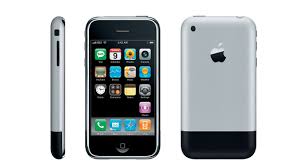
The first iPhone was coming at a 4GB level with a price of $499 and at 8GB with a price of $599. It boasted a battery life capacity of 8 hours of talk time as well as 250 hours of standby time. Also, after a year, HTC released the first device to include Google's Android OS, its Dream smartphone. 2020- The World at Our FingertipsWith the time, since the release of the iPhone thirteen years ago, we have arrived modern time. Apple has released different models of iPhone. The Xperia Z5 Premium phone was introduced in 2015 with a 4K resolution screen by Sony. Over the years, for improving the connectivity of smartphones, Wi-Fi and LTE have also progressed networking advancements. Additionally, like Samsung's Galaxy Fold, folding smartphones began to release in 2109. Finally, it is easy to say that" due to smartphones, the way of our life has been changed. It is estimated that among 5 billion cellphone owners all over the world, at least 2.5 billion of them own a smartphone. Does a smartphone have an operating system?Yes, a smartphone has an operating system similar to a desktop or laptop computer. There are four most common types of operating systems used on smartphone, Windows Phone (created by Microsoft), iOS (created by Apple), BlackBerry (created by Research in Motion), and Android (created by Google). What type of storage medium is used in a smartphone?Flash memory is used by smartphones for storing data and applications. Usually, smartphones have flash memory that cannot be removed from the phone. Also, smartphones allow users to utilize external storage as they may have a flash memory card slot, which is used for inserting an SD card. Difference Between a Cell Phone & a SmartphoneBecause mobile device technology is one of the most rapidly evolving fields in consumer electronics, distinguishing terms like cell phone and smartphone can be tricky. However, most people use a smartphone for Internet appliances, according to Techradar, with voice calls being almost incidental, whereas cell phones are primarily for phone calls. You must select between a regular mobile phone and a smartphone whether calls are more important to you or your work is more dependent on Internet access. Microprocessor and StorageAlthough when the thing comes to differentiate both cellphones and smartphones, first computing at least possesses power, later typically comes more memory, faster and more capable microprocessors. The faster processors have become essential due to the demanding applications like games, video, and photography. In order to save large music and video libraries, there are some models available on the market that have dozens of gigabytes of memory, which is also used to store databases and applications. On the other hand, a smartphone is commonly used for phone calls and basic apps, for which the simpler processor is suited. Display Size and TypeAs compared to cell phones, smartphones typically have larger display screens that allow you to view picture bigger and clearer and gives apps more visual space for graphics. Also, a big screen enables you to enjoy videos, movies, and other media. A touch-sensitive screen reduces the need for buttons through which it is in large size. The cell phone screen is mainly used to handle contact lists, simple games, appointment calendars, and to view and text messages and phone numbers. AppsThe apps and programs are included on both cell phones and smartphones that make the phone more useful. The apps, contact managers games, and text messaging programs are included on the cell phones. Smartphones offer users the advantage of the phone's greater memory, Internet connection, and faster processor. There are more than millions of smartphone apps that complete both basic and advanced needs. On the other hand, cell phones have more sophisticated versions of the apps; also, they contain apps for finance, photo editing, social media, musical performance, and other uses. Network ConnectionsAlthough many cell phones feature a Bluetooth short-range data connectivity to facilitate hands-free calling, they are the primary network connection for voice calls. But 3G/4G data and Wi-Fi network connections are offered by a smartphone. Near-Field Communications is a technology that allows you to use your phone as an intelligent credit card. Because cellular service providers bundle voice and data plans, monthly data allotment can add significantly to your bill for smartphone users. Cellular data can be used to access the Internet if a mobile tower is within range. Accessing the Internet via Wi-Fi, on the other hand, is normally free; however, the service is limited to houses and businesses that supply it. Finally, cellphones are harder to find now as they have almost completely been replaced by smartphones; however, they are still available from a variety of providers. Smartphones and cell phones are both able to handle the functions such as making and receiving calls. You should go for a smartphone if you want to use other apps and access a store to play games. Smartphones offer more functionalities and features compared to cell phones; they have more customization options as well as security features to keep data and the device safe, and features like reminders, alarms, etc. Furthermore, smartphones are costly as compared to cell phones.
Next TopicWhat can I upgrade in a laptop
|
 For Videos Join Our Youtube Channel: Join Now
For Videos Join Our Youtube Channel: Join Now
Feedback
- Send your Feedback to [email protected]
Help Others, Please Share










